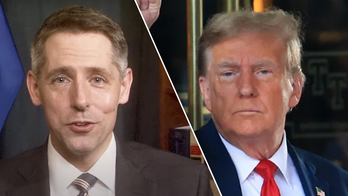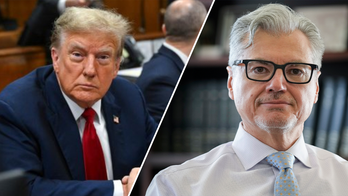The chairman of the Joint Chiefs of Staff said Sunday he is more concerned with Pakistani cooperation to contain the Taliban insurgency in Afghanistan than weighing military action against that country in retaliation for a terror attack in the U.S. emanating from there.
Appearing on "Fox News Sunday," Adm. Mike Mullen touched on four of the hottest spots on the planet -- Iran, North Korea, Afghanistan and Pakistan.
Mullen said he was pleased with the increase in Pakistani military assistance in the region as NATO forces fight Taliban and Al Qaeda soldiers who flood into Afghanistan from the porous Pakistani border.
But he would not say whether Pakistan has been put on notice that the United States would strike if a terror attack on the United States could be traced back to Pakistan.
Reports this weekend of contingency planning for a possible military strike followed news that the alleged attacker in the failed Times Square car bombing last month had ties to Pakistan.
"I mean, we're very concerned about that part of the world. We're very concerned about -- that's where Al Qaeda leadership lives. We know that. And we're working with Pakistan and, quite frankly, with Afghanistan to continue to put pressure on that leadership. And I wouldn't speak to any kind of details in terms of either plans or operations."
The chairman added that the NATO-led counterinsurgency effort in the Taliban stronghold of Kandahar is critical to success in Afghanistan. The Kandahar campaign is scheduled to begin next month and has been compared in importance to the overall war effort as Baghdad was during the U.S. surge in Iraq in 2007.
"I think Kandahar will give us very clear evidence of how this strategy is proceeding. It is the home of the Pashtun resistance. It is central to the insurgency. So I think success in Kandahar over the next many months is absolutely critical to the longer-term outcome in Afghanistan," Mullen said.
The chairman said he hopes that United Nations efforts will help stabilize Iran and North Korea, both of which are facing sanctions -- North Korea for sinking a South Korean submarine, killing 46 sailors, and Iran for violating international rules on developing highly enriched uranium.
North Korea denies that it sank the submarine and has threatened retaliation for any punitive action. But Mullen said North Korean leader Kim Jong Il tends not to stop after a single provocative move, and could be planning something else.
"The goal remains to certainly not have a conflict break out. That said, North Koreans committed, you know, a heinous act, if you will," he said. "And I'm concerned there's -- with Kim Jong-Il ... you know, there could be follow-on activities."
Mullen added that stability of North Korea after Kim's demise is a focal point for military planners.
However, it's up to President Obama to decide whether North Korea should go back on the State Department's list of nations that sponsor terrorism, he said. North Korea was removed from that list during the Bush administration as an incentive for cooperation, but Mullen said North Korea is a "known proliferator" that has been scolded by the United Nations.
As for a nuclear Iran, Mullen said he hasn't given a lot of thought about how to contain that situation, calling it a hypothetical concern that is left for political leadership to ponder. Intelligence estimates suggest Iran could have nuclear weapons in the next couple years.
"It's a longer-term concern. And when we -- if for some reason we ever got to that position, then I think we'd address that issue. I haven't spent a great deal of time on that up to this point," he said.
Mullen said that he is "hopeful" that preliminarily approved sanctions at the United Nations Security Council "actually get put into effect."
"I think it's very important in that regard because of the ability or the legitimacy in terms of moving forward and continuing to isolate Iran, as Iran continues to isolate itself. That said, the destabilizing impact of them achieving weapons capability, along with the destabilizing impact of striking them from whomever it came, is something I continue to be extremely concerned about," he said.




